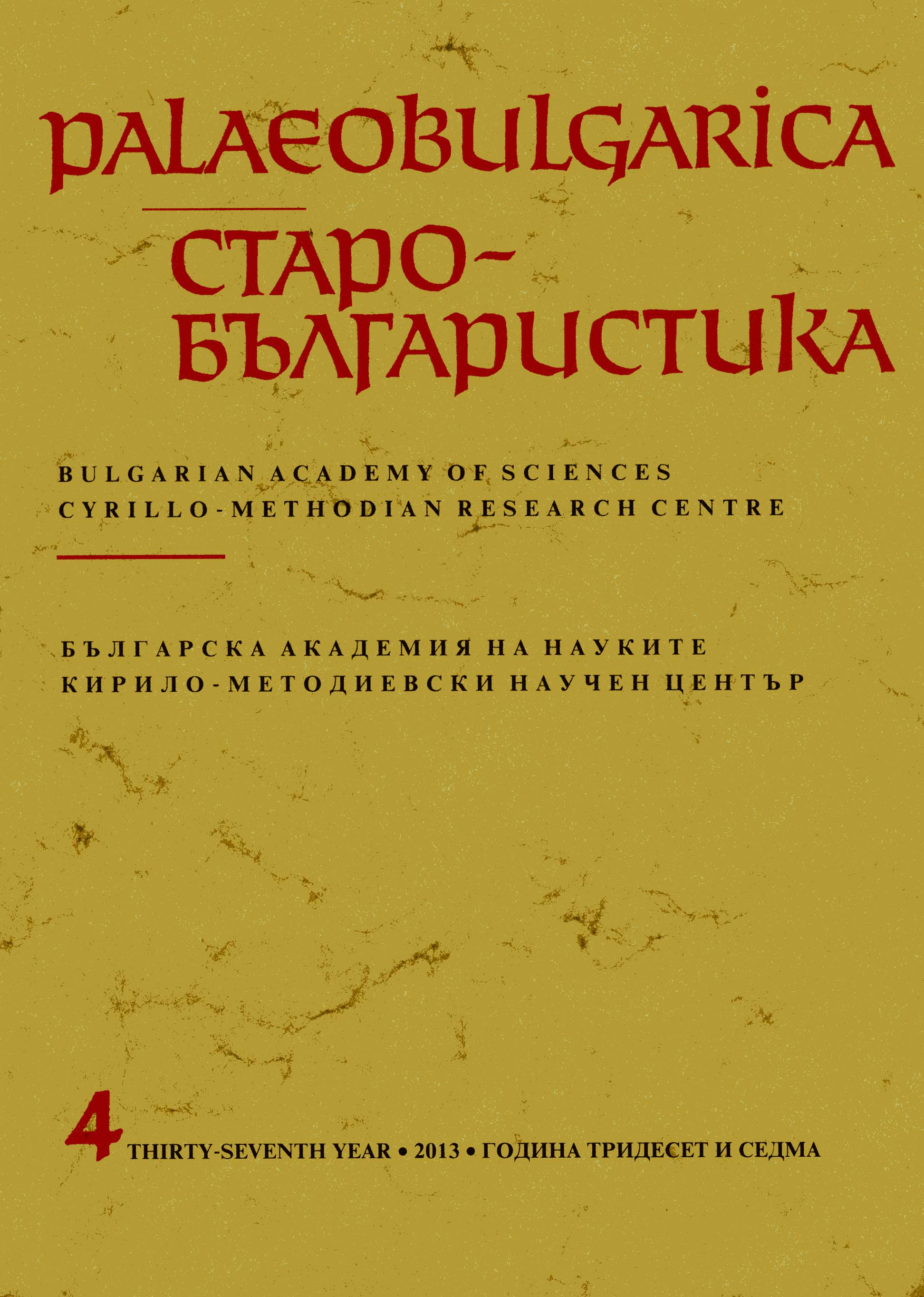За името Θεόφιλος; / Боголюб / Богомил в някои византийски и славянски средновековни текстове
On the Name Θεόφιλος; / Bogolyub / Bogomil in Certain Byzantine and Slavic Medieval Texts
Author(s): Georgi Minczew Subject(s): Language and Literature Studies
Published by: Кирило-Методиевски научен център при Българска академия на науките
Summary/Abstract: The article is a critical survey of the hypotheses connected with the name of the mythical founder of the Bogomil heresy. The analysis of certain Middle Bulgarian and Byzantine texts shows that Bogomil is not the translation of Gr. θί;όφιλος, since it is rendered as Bogoljub in the New Testament texts. The name Bogomil, Bogumil was in use in 1 Oth-century Bulgarian (it is also found in other Slavic languages, e.g. Czech Bohomil, Bohumil, Polish Bogumif) - presumably a native two-word compound personal name. The personal name Bogomil is secondary with regard to the appellative bogomil. Originally, the dualist heretics in the Bulgarian lands simply referred to themselves as 'Christians'. It is possible that not all of the heretics were called bogomils, but only the so-called 'perfect', the spiritual leaders who had undergone the 'spiritual baptism' (consolamentum, baptisma spirituale). Cosmas the Priest reports on heretics who called themselves 'Christians' and their leaders bogomils, i.e. 'people dear to God', 'loved by God'. The Old Bulgarian author substantivizes the phrase, converting it into the Slavic personal name, with which he was well familiar. Cosmas follows the Byzantine heresiological tradition, according to which the name of a heresy is frequently derived from the name of its actual or mythical founder – cf. 'Arianism' from Arius, 'Manichaeism' from Mani, 'Paulicianism' from Paul.
Journal: PALAEOBULGARICA / СТАРОБЪЛГАРИСТИКА
- Issue Year: 2013
- Issue No: 4
- Page Range: 43-52
- Page Count: 10
- Language: Bulgarian
- Content File-PDF

